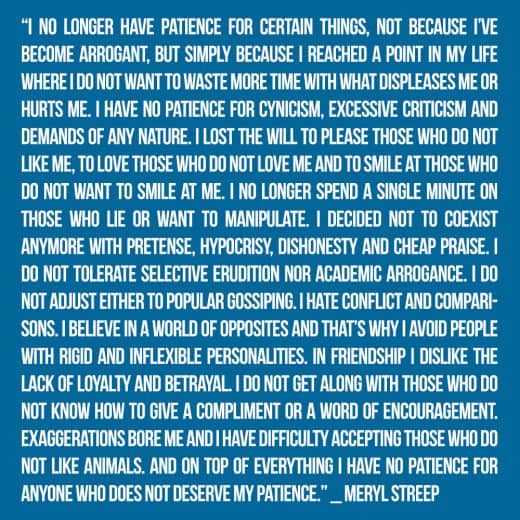Word To Live By
I No Longer Have Patience

Do You Think You Could Make $50,000 In 3 Months?
Original Article From: http://munchweb.com/50000-in-3-months
I just had to post this, partially because I struggle with a lot of these and also to look back on to make sure I start following more of the winner traits.
 TRUE STORY: In a fresh internet chat room 20 strangers made a pact together to make $50,000 revenue in 3 months by getting their ideas out there as fast as possible. It was a big but serious dream, especially considering some members were close to broke!
TRUE STORY: In a fresh internet chat room 20 strangers made a pact together to make $50,000 revenue in 3 months by getting their ideas out there as fast as possible. It was a big but serious dream, especially considering some members were close to broke!
In just 9 weeks two of the people in the group exceeded $50,000 and a few more are close behind and making great progress. However, at the same time over half the group is barely making a dent.
So what’s the difference? Why are some racing ahead and others being left behind?
All 20 people work in the same niche and market to the same audience, they are all intelligent people, but the difference between the winners and losers is in how they act and how they think…
The Winners…
The personality traits of winning entrepreneurs. Do you pass the test?
- The winners set launch dates, deadlines and aggressive goals like releasing a new product/update/offer every two weeks. They may miss, but they try hard to hit them.
- The winners focus on this one project with pinpoint precision. They make more money because they can say no to pursuing other projects. That makes sticking to #1 much easier.
- The winners don’t focus on perfection and are more focused on getting something good out there quickly, that getting something perfect out there sometime in the distant future.
- The winners accept “flops” as inevitable, and embrace the “flop”. They know their early attempts probably won’t do great, so it is important to get those early attempts done and dusted as quickly as possible.
- The winners hunt out their mistakes. This is against our natural emotion to accept we did things wrong but it is vitally important to improve. The winners know that mistakes are normal and are not wrong at all. They hunt out what they did wrong so they can improve next time.
- The winners say “If they can do it so can I”, and they find out how they did it. They network, analyze, scrutinize, and reverse engineer to find out why someone else did better than they did.
- They focus on a few USPs (unique selling propositions) and copy the rest from other winners.
- The winners focus on extending their strengths (after identifying them) and rely on using or copying others in areas they are weak.
- The winners hunt out successful people they can learn from and put a big effort into networking.
- The winners are generous to their partners and stakeholders. They pay generous commissions, good wages, share profits and help others. Their generosity stands out against the competition. This motivates their partners and creates opportunities.
- The winners focus on marketing more than the product/idea/service. In fact the marketing drives the product creation.
- The winners block out distractions and set time aside to get things done. They are disciplined to turn off email, chat, television and any other distractions that stop them from working.
The Losers…
- The losers drift and don’t held themselves to deadlines or targets. Ask the loser when his next deadline is and he won’t know.
- The losers can’t say no to shiny objects and have a lot of projects on the go and find it too hard to abandon any one project to focus more on others. Quite simply they can’t focus.
- The losers focus on perfection. They want everything ‘just right’ for when they make that all important launch. Perfection takes a long time and they miss opportunities and the learning process from launching NOW!
- The losers fear the flop. So much so that they may never launch, and if they do they may hide away or seek to blame others and not accept responsibility when things don’t go to plan.
- The losers are stubborn and blame others. They don’t want to be shown or face their mistakes. They want to prove to the world that what they did was right, and that it was others that were wrong. They’ll even go as far as calling their customers stupid for not buying their product, they’ll highlight the stupidity of the ad-network that does not approve their ad, they’ll blame a guru or teacher for their failures, and they’ll blame their friends and family for lack of support. They will be very reluctant to change or admit where they went wrong, despite the fact being wrong is NORMAL.
- The losers look at the winners and make excuses about why they can’t do what the winners have done. Instead of looking for ways to emulate the winners, they hunt out differences which they can identify as excuses for not being a winner.
- Losers forget about having any USPs at all and just try to copy someone else (and do a worse job). Just as common in losers is that they think they must do things differently to all the winners to stand out, and that doing this gives them a USP. So they choose not to do everything that the winners do to be “unique” and “clever”, and fail at the same time.
- The losers focus on trying to handle and be good at everything, and are reluctant to put their weaknesses in the hands of others.
- The losers avoid talking with successful people, or agitate successful people, because they don’t take advice and criticism well. Just being around successful people depresses them rather than motivates them because it shows that they have made mistakes and need to change, so they avoid it.
- The losers are greedy. They don’t want to share their profits and success with others and will offer lower commissions, wages, profit share and less help to others. They ultimately alienate themselves from opportunities.
- The losers focus on their product foremost and marketing second. They may produce an awesome product, but without solid marketing it flops.
- The losers are easily distracted. In fact they unconsciously routine their day to have distractions like email alerts, chat, television, news, chores, phone calls etc. so they don’t have to face the music. They invite distraction rather than actively take steps to block it out. Even though these distractions lower their quality of life and stop them from achieving their dreams, they will defend them like a drug addict.
So are you a winner or a loser?
A Story To Live By: The Fisherman’s Parable
An American businessman was at the pier of a small coastal Mexican village when a small boat with just one fisherman docked. Inside the small boat were several large yellow fin tuna. The American complimented the Mexican on the quality of his fish and asked how long it took to catch them. The Mexican replied only a little while. The American then asked why didn’t he stay out longer and catch more fish?
The Mexican said he had enough to support his family’s immediate needs.
The American then asked, but what do you do with the rest of your time?
The Mexican fisherman said, “I sleep late, fish a little, play with my children, take siesta with my wife, Maria, stroll into the village each evening where I sip wine and play guitar with my amigos, I have a full and busy life, senor.”
The American scoffed, “I am a Harvard MBA and could help you. You should spend more time fishing and with the proceeds buy a bigger boat, with the proceeds from the bigger boat you could buy several boats, eventually you would have a fleet of fishing boats. Instead of selling your catch to a middleman you would sell directly to the processor, eventually opening your own cannery. You would control the product, processing and distribution.
You would need to leave this small coastal fishing village and move to Mexico City, then LA and eventually NYC where you will run your expanding enterprise.”
The Mexican fisherman asked, “But senor, how long will this all take?”
To which the American replied, “15-20 years.”
“But what then, senor?”
The American laughed and said “That’s the best part. When the time is right you would announce an IPO and sell your company stock to the public and become very rich, you would make millions.”
“Millions, senor? Then what?”
The American said, “Then you would retire. Move to a small coastal fishing village where you would sleep late, fish a little, play with your kids, take siesta with your wife, stroll to the village in the evenings where you could sip wine and play your guitar with your amigos.”